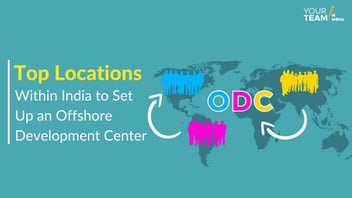The COVID Pandemic has changed the way we work and the way we perceive work. Last year when the pandemic broke, there were a lot of uncertainties. Both the employees and the management were reluctant to work from home. Both of them felt that the situation would see a massive dip in productivity.
It is close to 18 months since the pandemic broke in the world. People are working comfortably from home. They have got used to the uncertainties, lack of privacy, and lack of infrastructure. They have learned to have a healthy work-life balance and continue to work the same way. Many organizations have felt that work from home (WFH) is more productive than working from an office.
However, many large organizations have begun insisting that the employees return to the office. Managers feel good about working from the office because of the interaction in the team. The rank-and-file organization does not feel like they want to come to the office to work.
These people have got used to working from home. The reasons for the same are as follows:
- Employees have moved out of the high-cost cities and have moved into towns. They feel uncomfortable about the relocation to the cities again.
- Uncomfortable about the high costs of living.
- Uncomfortable in the long commutes from home to work and back.
- The disturbance in their peaceful schedule that they had drawn for themselves when they work from home.
Why Offshore outsourcing is on the rise?

Employees are refusing to come to the office to work. There is a prediction that there will be many resignations if the employees are forced to return to the office. The employees are comfortable in earning a bit less but still working out of their homes. Many organizations are not comfortable with work from home, but it looks like they will have to concede to the demands of the employees and get a remote workforce.
Now comes the question. When the organizations are comfortable in the remote workforce and if they would have to look at having a majority of the workforce in a remote place. Can they cut costs and optimize? Yes, the remote employees might be willing to accept minimalistic raises in salaries but will not accept a pay cut. However, this trend means that the organizations will still have to live with the same operational costs.
So, organizations have begun thinking if the team will be remote and as long as I can communicate and as long as they can adhere to a process. How does it matter where the team is. So, the organizations have begun exploring remote teams in offshore locations. The organization's interviews pick up their teams of choice based on knowledge, communication, and reasonable time zone overlaps.
Offshore outsourcing is on the rise.
Companies are under immense pressure to keep their operational costs low. This is because of the pandemic's uncertainty in the future of offshore development centers with a temporary team. The teams' costs are significantly low. There are no severance costs and HR headaches to hire and fire.
How Remote Working Is the Way of the Future?
Employees prefer remote working for a time that they save, costs they save, and the rise in technology to support them in working efficiently. Some organizations also prefer that to avoid the real estate, management, and facilities costs. People have become comfortable with remote project management tools and video collaboration tools.
Offshore Software Development in India

Offshore outsourcing to India has also increased by leaps and bounds. The reason why India is chosen compared to other countries are as follows.
- Wide range of Talent
India has a large pool of talent in IT. India has around 4.5 million employees in the IT industry. The wide talent pool shows the wide availability of talent that any overseas organization can leverage.
2. Good communication and cultural orientation
Indians have English as their first language right from school. The medium of instruction in most of the schools is in English. The familiarity with the language ensures that Indians have high levels of communicating ability In English.
3. Exposure to the IT ecosystem
India has been the most chosen location for many organizations. The IT story in India began 40 to 45 years ago with Texas Instrument setting up the office. The industry has seen massive growth. Indians have the ecosystem of building large IT projects and IT products. So, the ecosystem of IT is there in India.
4. Cost-effectiveness
The biggest advantage of India is its cost-effectiveness. The costs that a typical western organization will spend in outsourcing to India will be 1/4th to 1/5th of the cost they would incur if they would do the work in-house.
5. Develop Centres of Excellence
Many western organizations have set up dedicated teams in India. They all began with smaller teams or one person in the first contract. The team grew to be dedicated teams as and when the organizations became comfortable with both the concept of dedicated offshore teams as well as the people in the teams.
Outsourcing Challenges

Let us now discuss the challenges you would face in having dedicated teams.
- Security
There is always an issue with the IP that the organization exposes to an external firm. There is an uncertainty with IP, the access to the date, and the ability of an organization to keep their trade secrets safe when they would outsource to an external location. Contracting, however, is easier in India as Indian laws alignment with western laws. The organizations can take the partner to court in case there are any leakages.
2. Different time zones
The time zones are very different when it comes to an offshore location. Companies in India have extended the work timings to suit US working hours, and there is a comfortable overlap of work by the Indian team.
3. Cultural & Communication Issues
Cultural language in terms of people understanding each other is a big aspect. Relationships break when the culture is not understood. Communication fails when people can’t speak the same language that is common to both. India has a good combination of people who can understand the US culture and have a good command of English.
Conclusion
To conclude, this is when organizations in the US have to leverage offshore outsourcing and begin building teams. Remote working is anyway likely to be the new norm. People will still feel comfortable working from home. Organizations have also become comfortable in managing teams remotely. So, choosing dedicated teams in India will help the organizations in the US to build cost-effective and talented dedicated centers of excellence.
At your Team in India, we have a team of technology experts. If you want to hire Developers, set up ODC, or have any questions on what all services we offer at Your team in India– Click here to contact us.






